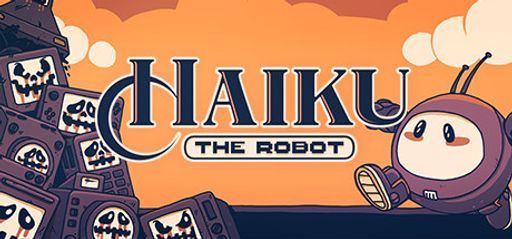Hey friends! I spent a cozy stretch of afternoons with Haiku, the Robot and wanted to share my thoughts. If you enjoy gentle-but-interesting metroidvanias with a mechanical twist, this one might fit nicely. It’s not trying to be the biggest or flashiest game in the genre, but it’s pleasant, tidy, and easy to get lost in.
Overall Impressions
Haiku, the Robot is a small indie metroidvania from Mister Morris Games, released on April 28, 2022. It leans on classic ideas — exploration, upgrades, and boss fights — and shows the team’s love for the genre. What stood out most for me was how un-frustrating it feels. Backtracking is minimal, movement is snappy, and enemies don’t annoy. The pacing usually keeps things moving.
What falls short is surprise. The game borrows familiar beats from bigger names, so if you’re after something highly original, it may feel more familiar than fresh. Still, for a cozy romp through a mechanical world, it delivers beautifully.

Gameplay Mechanics
The core loop — explore, fight, upgrade, unlock — is clean and responsive. Movement feels solid, and combat is simple but engaging. Light attacks, upgrades, and a few tricks keep things interesting. It doesn’t try to match the brutal combat of Dead Cells, but it gives you enough tools to feel capable. I liked the balance: fights make you think without becoming walls of frustration.
Exploration moves quickly and stays fun. Backtracking rarely slows you down, which keeps momentum strong. The upgrade and currency system works, though I sometimes found resource management annoying. A few upgrades unlocked later than I wanted. Bosses land in the “solid” range: satisfying but not unforgettable. Other players said the same — good, not legendary.

Story and Characters
The game casts you as a robot (Haiku) exploring a corrupted mechanical land, trying to piece together what happened. The story leans into atmosphere over long monologues or heavy character drama. I liked how the world itself is the main storyteller — ruins, broken machines, and environmental hints carry a lot of narrative weight. Characters aren’t deeply fleshed-out in a traditional way, but there’s enough charm in the setting and the small interactions you encounter to make the journey feel purposeful. If you want a text-heavy epic, this isn’t it; if you enjoy discovering story through exploration and environment, it does a cozy job.

Visuals and Graphics
Visually, Haiku has a muted, slightly melancholic palette in early areas that slowly moves into more colorful spots later on. The art style isn’t as painterly or detailed as some of its inspirations (and a few players compared it directly to Hollow Knight), but it has a neat charm and consistent aesthetic that suits the robotic theme. Some areas really pop once you get deeper into the map, and the change in color and detail helps keep the world feeling fresh. Overall, it’s attractive in a humble, indie way — not flashy, but fitting.
Sound and Music
I enjoyed the soundtrack. It’s moody and atmospheric, which fits the mechanical, slightly eerie world. Sound effects for hits, movement, and environmental cues are serviceable and help keep the immersion. There’s no bombastic voice acting or big orchestral themes here — and that’s fine, because the quieter approach suits the game’s tone. The music supports exploration and doesn’t distract.

Difficulty and Replayability
Difficulty sits in a comfortable spot for a lot of players. It can give you a little push at times but won’t happily stomp you into the dirt. That makes Haiku a welcoming pick for folks new to metroidvanias or those who want a gentler challenge. Replayability is decent: there are optional areas and upgrades to chase, and the map has secrets that reward a second look. It’s not a game designed around speedrunning or heavy endgame content, but there’s enough to make you want to poke around again.

Extras and Developer notes
Mister Morris Games both developed and published Haiku, which is always nice to see from an indie studio pouring their vision into a small package. The game wears its inspirations openly — several players noted similarities to big names like Hollow Knight — but it doesn’t pretend to be them. It’s more like a friendly tribute that adds a few of its own spins.

Final Thoughts
If you want a relaxed, well-paced metroidvania that’s welcoming and low on frustration, Haiku, the Robot is a cozy pick. It’s not an absolute standout in every category, but it blends solid movement, clean exploration, and a pleasant atmosphere into an enjoyable package. Great for newcomers and players who prefer their adventures less punishing and more exploratory.
Rating: 4 out of 5 stars

Pros: smooth, low-friction exploration; pleasant atmosphere; balanced difficulty; good length for a single-sitting or multi-session playthrough.
Cons: not hugely original; bosses and some upgrades don’t feel standout; visuals aren’t as polished as some genre heavyweights.
If you love tinkering through gear-filled ruins and prefer a metroidvania that’s cozy instead of crushing, Haiku is worth a try. Thanks for reading — catch you next time with another cozy find!

